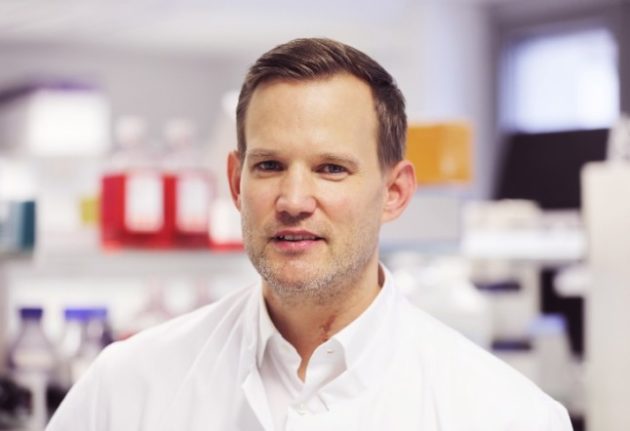Allowing only vaccinated and recovered people to enter venues, a system known as 2G, would give people a “false sense of security,” Jonas Schmidt-Chanasit, a virologist at Hamburg University, told Deutschlandfunk radio on Saturday.
He said that vaccinated people could become infected and transmit the virus, even if the probability was lower than with unvaccinated people.
Schmidt-Chanasit said that the only secure option is a 1G system – that is to test everyone, whether vaccinated, unvaccinated or recovered.
He warned the government against abandoning testing, saying that Germany instead needed a “test offensive.” He also criticized the fact that free rapid testing had been abolished in mid-October.
Hendrik Streeck, head of virology at Bonn University, also said that the 2G rule was fraught with problems.
“The vaccinated have the feeling they are no longer part of the pandemic and behave accordingly,” Streeck told Redaktionsnetzwerk Deutschland (RND) on Saturday.
“The second problem is the unvaccinated, who will be excluded and are thus even less likely to get tested.”
“If unvaccinated people are not allowed to participate in social life, they may organize parties at home. Then, chains of infection can no longer be controlled at all,” he warned.
Streeck also called for the reintroduction of free Corona tests.
Saxony became the first German state to announce on Friday that it would introduce 2G rules for venues such as restaurants and bars.
Meanwhile, Austria decided on Friday to introduce a nationwide 2G rule. People without vaccination or proof of recovery will no longer be allowed to visit pubs, hairdressers and events from Monday.
Several politicians and heads of medical organisations have called for nationwide 2G rules in Germany.
READ MORE: Calls grow for Germany to bring in national restrictions for unvaccinated



 Please whitelist us to continue reading.
Please whitelist us to continue reading.
I can see his point – I wish more people would get vaccinated, but regular testing for all seems to be a sensible alternative.
Perhaps I am missing some context here, but a 1G rule would be disastrous. I have yet to see any proof beyond speculative correlation that the huge amount spent on rapid tests this last summer did anything to help. Numbers fell across the board in numerous countries, all of which had no free rapid test program. Germanys huge issue currently is being driven by low vaccination numbers, and something should be done to correct this problem.
A national 2G campaign that reminds people we are in the midst of a huge infection explosion is what is needed IMO.